#Writing Reference
Explore tagged Tumblr posts
Text
One thing I rarely see in injury and chronic pain fics is the grief that comes with missing out on stuff you love because you can no longer do them without hurting yourself. Writers who have been disabled their whole lives (or at least a long time) tend to forget that not all disabled people are used to being disabled. For able-bodied characters, especially athletic ones like vigilantes, a serious injury could mean a jarring change that includes giving up the things that mean the most to them.
I was physically fine until I was 18. Back then, my sense of self was entwined with interests that required a lot of movement and dexterity. I started doing MMA in middle school for self-defense. I loved parkour and even had a few hundred subscribers on my old YouTube channel. I learned to shoot and was gifted my first gun when I was 16. I took up multiple instruments. You get the idea.
My motorcycle accident fucked up the joints on my left side—my knee and shoulder especially, but also wrist to an extent. When it first happened, I thought I'd be on crutches for a bit but things would eventually get back to normal. The pain didn't go away even after I got rid of the crutches but I figured it was just residual and I should do what I'd been doing before. It's why I turned to substances—to block the pain and do what I love, but that's another topic. I didn't recognize my injury as a disabling thing until the end of the pandemic, when I put my parkour channel on an indefinite hiatus because it was seriously wearing my body down. It might sound silly to you but I was devastated. It's like if Spider-Man wasn't allowed to swing from buildings. It took me a long time to make peace with losing that part of me.
Another piece of that grief is even when you can do stuff, it's not the same because you have to exclude certain aspects of it for your own health. It's like the Robin that died and came back wrong. I can't use certain gym equipment and I have to tell my sparring partners what to avoid. I don't go to the shooting range much now because I can't extend my arm and hold a rifle for the amount of time it takes to aim without it starting to hurt. I'm a drummer, but I need breaks throughout the setlist and I can't do anything too fast or complex with the pedals, which means I can't play some of my favorite songs and my band is limited in what we write and perform. I can't take my motorcycle on road trips without frequent rest stops. Making accommodations helps physically, but emotionally, they're not always easy to accept because that means accepting the pain as a long-term disability rather than a temporary setback.
This got super long because I think it's unexplored in fics so some tips for creators:
First, learn how the body works and how stupidly fast and easy it is to get hurt. Mine was on a residential road because I didn't pay attention for 0.2 seconds
Learn the difference between internalized ableism and being upset over becoming disabled. I think a lot of writers skip over the feelings someone would naturally experience because it can be construed as ableism. Let them be in denial, sad, angry, etc. upon finding out because acceptance almost never happens right away. That's different from being a dick to themselves or others based on disability
Also, not everyone uses the same labels or has the same vocabulary to describe themselves. Different characters will have different ways of describing depending on their personality, level of knowledge, where they come from, and their relationship with their disability. I still don't really call myself disabled since I don't have it as bad as others so I tell people what happened instead (anyone who says "differently abled" will receive a different ability from me in the Denny's parking lot)
Think about how they cope with their new disability. Do they realize it's a disability right away? Do they talk to someone? Search desperately for a cure? Numb the pain? Turn to alternative methods? Do they worry about something else first, like money? Do they develop something else because of it, like a mental illness? Again, coping poorly is not ableism
What stays the same and what changes? I think about the difference between Forrest Gump and Lieutenant Dan after they were both wounded in battle
If they have a passion they can no longer pursue, it doesn't make much sense for them drop it so readily. Maybe they find a way to continue with accommodations (a good place to get creative!). Maybe they try and push through anyway. If they do ultimately resign, include the thought process and internal conflict behind it
#writers on tumblr#writeblr#writing#writing advice#writing tips#creative writing#fanfic tropes#fanfic#fanfiction#comic fandom#multi fandom#fandom#injury#chronic pain#disability#disabilties#disabled#dc comics#marvel#personal#writing resources#writing reference#grief#opinion#tw swearing#long post
579 notes
·
View notes
Text
Reblogging for reference
When your Character...
Gets into: A Fight ⚜ ...Another Fight ⚜ ...Yet Another Fight
Hates Someone ⚜ Kisses Someone ⚜ Falls in Love
Calls Someone they Love ⚜ Dies / Cheats Death ⚜ Drowns
is...
A Ballerina ⚜ A Child ⚜ Interacting with a Child ⚜ A Cheerleader
A Cowboy ⚜ A Genius ⚜ A Lawyer ⚜ A Pirate ⚜ A Spy
A Wheelchair User ⚜ A Zombie ⚜ Beautiful ⚜ Dangerous ⚜ Drunk
Funny ⚜ In a Coma ⚜ In a Secret Society ⚜ Injured ⚜ Shy
needs...
A Magical Item ⚜ An Aphrodisiac ⚜ A Fictional Poison
A Coping Strategy ⚜ A Drink ⚜ A Medicinal Herb ⚜ A Mentor
Money ⚜ A Persuasion Tactic ⚜ A Quirk ⚜ To be Killed Off
To Become Likable ⚜ To Clean a Wound ⚜ To Self-Reflect
To Find the Right Word, but Can't ⚜ To Say No ⚜ To Swear
loves...
Astronomy ⚜ Baking ⚜ Cooking ⚜ Cocktails ⚜ Food ⚜ Oils
Dancing ⚜ Fashion ⚜ Gems ⚜ Herbal Remedies ⚜ Honey
Mushrooms ⚜ Mythology ⚜ Numbers ⚜ Perfumes
Roses ⚜ Sweets ⚜ To Argue ⚜ To Insult ⚜ To Kiss
To Make False Claims ⚜ Wine ⚜ Wine-Tasting ⚜ Yoga
has/experiences...
Allergies ⚜ Amnesia ⚜ Bereavement ⚜ Bites & Stings
Bruises ⚜ Caffeine ⚜ CO Poisoning ⚜ Color Blindness
Facial Hair ⚜ Fainting ⚜ Fevers ⚜ Food Allergies
Food Poisoning ⚜ Fractures ⚜ Frostbite ⚜ Hypothermia
Injuries ⚜ Jet Lag ⚜ Kidnapping ⚜ Manipulation ⚜ Mutism
Pain ⚜ Paranoia ⚜ Poisoning ⚜ More Pain & Violence
Scars ⚜ Trauma ⚜ Viruses ⚜ Wounds
[these are just quick references. more research may be needed to write your story...]
Writing Resources PDFs
17K notes
·
View notes
Text
Writing a "Self-Conscious" Character

Self-consciousness - a sense of self-awareness heightened to an extreme and problematic degree.
It manifests through a fixation on how other people perceive your looks, personality, and behaviors.
Since you believe everyone has negative thoughts about you, you develop those same thoughts about yourself.
These feelings can easily become overwhelming, leading to a detrimental effect on your quality of life.
Signs of Self-Consciousness
If you feel like everyone dislikes you and mocks your every move, there’s a good chance you’re a self-conscious person. These three signs might help you better determine whether or not you’re self-conscious:
Excessive embarrassment: Perhaps the signature feeling of self-consciousness is embarrassment. In social situations, self-conscious people are prone to think everyone around them views them in a negative light. The embarrassment this causes leads people to experience crushing levels of self-doubt and withdraw from others.
Low self-esteem: If you think you have nothing positive to offer the world, you’re probably very self-conscious. While not all self-conscious thoughts and insecurities are so dire, they all tend in this negative direction. It might take some work, but you can overcome these feelings, build self-confidence, and achieve real happiness.
Social anxiety: Self-conscious patterns of thought often lead people to experience a great deal of social anxiety. They might have an especially hard time being around strangers, coworkers, and acquaintances. In extreme cases, their fear of rejection might even lead them to withdraw from their closest friends and loved ones.
How to Stop Being Self-Conscious
Even if you’re self-conscious now, you can take steps to build your confidence and become more comfortable in social situations. Here are a few tips you can incorporate into your life:
Be kind to yourself. To overcome self-consciousness, turn your feelings of self-loathing into self-love. Rather than engage in self-criticism, work on reciting positive affirmations to yourself. Focus on your strengths and what you have to offer the world. Realize that even perceived weaknesses can become strengths when you utilize them well. It might feel unnatural at first, but self-acceptance can prove to be just as much of a learned behavior as self-consciousness.
Get outside your comfort zone. In the course of your daily life, try to put yourself in situations that make you uncomfortable. Start small and work your way up from there as you begin to step out of your comfort zone. Remind yourself there’s a first time for everything. As you experience self-conscious emotions in these scenarios, you’ll slowly begin to realize they aren’t as bad as you worried they’d be.
Meet with a therapist. Reach out to a licensed therapist to work through how your feelings of self-consciousness developed in the first place. These trained professionals can help you unpack why you feel anxiety in social situations or why your own thoughts can often work against you. They’ll also help you build up your sense of self-worth, leading to an improved state of well-being.
Practice mindfulness. If self-consciousness is a fixation on negative thoughts, mindfulness is the process of letting these thoughts go. When you practice mindfulness meditation in your everyday life, you start to realize your self-conscious thoughts are like storm clouds passing through the sky. The same goes for your emotions. If you let these thoughts and feelings pass through you rather than latch on to them, you’ll begin to view yourself with more objectivity, equanimity, and compassion.
Reframe your thoughts. Your inner critic will make you believe everyone thinks you’re awful and knows every bad thing you’ve ever done. This is an example of the spotlight effect—the belief everyone in a room focuses on you. In reality, many people are probably just as self-conscious as you and are worrying over what you think about them. As you reframe your negative thoughts in a positive way, you’ll bolster your sense of self-worth.
Causes of Self-Consciousness
Self-consciousness arises in people for all sorts of different reasons.
Mental health conditions like depression, anxiety, or OCD might put you at higher risk for developing these feelings about yourself.
Childhood experiences of abandonment, bullying, and rejection can also have a major impact on a person’s self-image or propensity for negative self-talk.
Even into adulthood, negative experiences with others can lead you to develop a poor self-image and an increased sense of self-consciousness.
Source ⚜ More: Notes & References ⚜ Writing Resources PDFs
#writing notes#character development#writeblr#writing reference#literature#writers on tumblr#dark academia#spilled ink#writing prompt#creative writing#light academia#writing inspiration#writing ideas#character building#writing resources
184 notes
·
View notes
Text
The Act of Writing Psychotic Characters
Part 1: Attention vs Intention
It's been a while since I received this request, and I ensured I took my time with the thoughts, evaluation, and analysis. This topic will be covered in three parts, so here's the first.
Before we proceed, please note that I am not a psychiatrist, psychologist, or any professional in that field. This is just an insight into how this kind of concept can fit into your novels.
Okay, let's begin.
The Attention vs Intention part of this topic will discuss two ways of portraying these type of characters in scenes.
First, you need to understand that psychotic characters aren't psychotic based solely on their speeches or actions. If that's all you have in mind before approaching a story, you might leave a huge gap in the execution.
Rather, it's how they feel—the desire to satisfy their current emotions.
They have drives and motives, but most especially beliefs which, in most cases, are hardly understandable by other people. It's wrong and unacceptable by society, but to them, they wouldn't do it any differently.
That's why most psychotic characters have no remorse. You simply can't apologize or feel sorry if you don't 'believe' that you're in the wrong.
➜ Attention Psychosis
Psychotic characters whose main purpose in a story is limited to presence (i.e., showing up in scenes and visibly serving the role of a psychotic character) are attention psychotics. You don't flesh out their backstory or why they are who they are.
Their drives and motives aren't talked about enough to the point of justification. Readers hardly care about them, but the action they bring to the scene creates a rich narrative with the purpose of psychosis.
In summary, their role is minor. We see such cases in movies like The Babysitter.
Let's agree that none of the cult characters in that movie are exactly sane, as their main aim is to end their victims’ lives in the sickest ways possible. However, there's a certain character, Max, who simply enjoys the idea of "killing and seeing people bleed."
That has exceeded the central idea of being a cultist who gets involved in blood sacrifice to achieve their 'dream life' like the rest of the characters. It's now something more and different.
Something that has to do with homicidal ideation.

Max worked in a diner where he dealt with people that annoyed him so greatly that he wanted to kill them. So he got the opportunity to join a cult and do just that.
It was plain clear this guy had something else going on for him, but throughout the movie, his character had no special attention or even a peek into his thoughts. Although, it still worried the audience. Job done.
➜ Intention Psychosis
When a story is centered around a character's mental state, their motives, drives, beliefs, actions, and the story actually unfolds by going deeper into this concept, you have intention psychosis.
If not entirely, at least mostly, it defines the entire plot surrounding that character. People get to understand why they are who they are, their mode of action, what drives them, and even a peek into how they perceive the world around them.
Such scenarios are seen in movies like The Joker and Pyramid game (Korea). The audience gets a glimpse into their overall life and understands at least to an extent why they are the way they are.
Their beliefs get twisted for certain reasons, and there was just no stopping them. Here the characters were more than a presence; they were a central core.
In the movie Joker, we watched Arthur’s impoverished life unfold, with every event and incident worsening his condition further.

Baek Ha-rin in Pyramid Game literally created an entire game system to watch a student, who happened to be her old friend, suffer both physically and mentally. She went to great lengths to carry out this nefarious act under the guise of the game. Although this movie encompassed more than just this storyline, it was hard to ignore the unhealthy drive and actions of the young lady with an innocent face.
Before incorporating a psychotic character in your novel, determine their form of portrayal and appearance in the overall story. Are they going to serve as an attention psychotic or an intention psychotic?
Inspired by @sothera
Stay tuned for the next part!

Before you go!

My Characters and I is an extensive one-on-one coaching session designed to create characters that leap off the pages and become best friends with your readers.
What's a great story without remarkable characters? Spots are filling up fast, so grab yours now and get ahead of millions of writers out there.
👇👇👇
#writing#writeblr#writers on tumblr#writer#writers and poets#writerscommunity#writing community#wattpad#ao3 writer#a03 writer#writing advice#writing tips and tricks#writing tips#writing techniques#writing guide#writing blog#creative writing#fiction writing#writing life#writing novels#writing on tumblr#writing process#writing resources#writing reference#writing strategies#writing writing writing#writers of tumblr#aspiring writer#aspiring author#writing a book
110 notes
·
View notes
Note
How do I write characters that have awesome chemistry and make their relationships feel super real and interesting?
Great character chemistry can turn a good story into one that readers can’t forget. It’s a spark that makes your characters’ relationships seem real and exciting. Like real relationships, characters will have unique ways of showing they have chemistry with each other. They might share a unique interest that would be offputting to other people outside their relationship, or they might have a shared love language that makes them a perfect fit for one another.
Like all advice, the examples below come with the caveat of “whatever works for your story.” You know your characters and their personalities, so there isn’t going to be a one-size-fits-all approach. The examples below show ways your characters can interact with one another that you can use as a springboard for writing characters with good chemistry in a way that feels natural, but make sure that whatever you choose serves the type of story you want to tell and the kinds of people your characters are.
Behaviour
A lot of what people do is unconscious. People will often know when we have chemistry with someone because of subtle differences in the way we behave.
Have characters unconsciously mirror each other’s actions.
Include small acts of intimacy, like sharing inside jokes or personal anecdotes.
Show characters prioritising each other’s needs or sacrificing their interests for the other.
Develop unique habits that characters only exhibit around each other.
Use consistent, unique actions or quirks that reveal a character’s feelings.
Create scenarios where characters defend each other’s viewpoints or actions to outsiders.
Allow characters to show vulnerability around each other.
Have characters unintentionally adopt each other’s mannerisms or phrases over time.
Have your characters make an effort to engage in activities they don’t typically enjoy, just to be with the other person.
Show characters naturally falling into synchronised rhythms, like walking in step.
Interactions
A big part of how a character shows chemistry with another is how they interact with them. It’s all about how, when, and why they speak and is a good space to lace their interactions with additional meaning.
Lace your dialogue with subtext.
Have characters finish each other’s sentences or speak in unison without planning it.
Include playful banter and light teasing.
Allow for moments of comfortable silence that show a mutual understanding and connection.
Conflicts can be heated, but should often end in mutual respect and a stronger bond.
Write intimate conversations where characters share secrets or dreams.
Develop scenes where characters work together seamlessly, anticipating each other’s moves.
Write moments where one character can tell what the other is thinking just by looking at them.
Have interactions where characters seek each other out for advice or comfort.
Create situations where characters celebrate each other’s achievements genuinely and enthusiastically.
Body language
Much like behaviour, when characters have good chemistry with someone their body language will change. This body language can also run counter to ways they might normally be, like a shy person leaning close to someone they have good chemistry with, when usually they’d keep their distance. There are lots of subtle ways that body language can show how someone is feeling.
Subtle touches like brushing hands or a gentle push that lingers just a moment too long.
Leaning towards each other while talking, showing attraction or interest.
Describe the way characters mirror each other.
A character’s eyes lighting up or softening when they look at each other.
Positioning themselves between their partner and a threat.
Unintentional proximity, like standing or sitting closer than necessary.
Nervous gestures that characters show only around each other, like fidgeting or playing with their hair.
Warm, genuine smiles that are reserved for one another.
Instinctively reaching out to comfort each other in times of distress.
Relaxed posture in each other’s company.
Attitude
Attitude affects everything from behaviour to interaction. It is the underlying reasoning that influences all the others. It’s important to think about what attitudes and thoughts your character has as their norm, and then see whether their chemistry with another character means that they preserve that attitude, or if it turns it on its head. While the below are some examples, the list is certainly not exhaustive, so make sure that you know your characters’ goals, motivations, and both internal and external conflict to really get to grips with how their attitudes might affect their relationships.
Show a respect for one another that they don’t show with others.
Are consistently patient with one another’s flaws.
Willingness to compromise or find middle ground.
Giving each other the benefit of the doubt in misunderstandings.
Unconditional support during difficult times.
Take pride in each other’s accomplishments, without jealousy.
Consistently have faith in each other’s abilities and decisions.
Openly express admiration for one another’s talents or character traits.
Maintain a positive outlook on the other’s intentions, even when they make mistakes.
Show an understanding between characters that goes beyond words.
Positive story outcomes
Character chemistry often comes with personal growth or positive story outcomes that are explored through the relationship. Relationships often act as a microcosm of the plot, showing its development on a smaller scale. For this reason, knowing the type of story you want to tell will have a huge impact on whether you want your relationships to have positive story outcomes. Here are some examples of outcomes that would be positive influences on the story.
Stronger alliances or partnerships.
Romantic subplots that add depth and interest to the main story.
Believable character development as they influence each other positively.
Moments of triumph where their combined strengths overcome obstacles.
Deep, meaningful friendships.
Can easily resolve conflicts that seemed insurmountable.
Celebration is more impactful due to their shared success.
A fortified sense of trust that can be pivotal in critical story moments.
Enhanced reader investment in the characters and their relationships.
Openings for sequels or spin-offs based on popular characters dynamics.
Negatives story outcomes
Character chemistry and good relationships don’t always lead to positive outcomes. Sometimes a great relationship can mean that things don’t go to plan for the characters or they might have to give something up to maintain it. Below are some examples of negative outcomes that might arise from good character chemistry or strong relationships, because not every relationship has a happily ever after.
Conflict arising from misunderstanding or jealousy.
Unresolved tension between characters on the outside.
Can lead to unnecessarily complex emotional entanglements
Creates obstacles due to the characters’ strong connection being exploited by antagonists.
Tragic outcomes when the chemistry between characters causes them to make irrational choices.
Intense confrontations that threaten the relationship.
Betrayals that are more impactful because of the depth of their relationship.
Unforeseen sacrifices that characters make for each other.
Heightened stakes when the wellbeing of one character is tied to the other.
Unexpected changes in the character when relationships are cut short.
#writeblr#writing tips#writing resources#writers of tumblr#writing#writers#creative writing#writing community#creative writers#writing inspiration#writerblr#writing advice#writing help#writing reference#character development#ask novlr#writers on tumblr
85 notes
·
View notes
Text
...This kinda reminds me of a Skystar FIC I've read.🤭
"Stuck in the timeloop as a punishment" is cool and all, but stuck in the timeloop voluntarily though? Oh, brother. Stuck in the timeloop cause you just can't move on. Stuck in the timeloop even if you know that it's not real and whatever should've happen already did. Stuck in the timeloop even if doesn't makes you happy. You just can't bear the thought of not being able to see them ever again. Stuck in the timeloop even if you know you should move on. Stuck in the timeloop even if you know they would want you to move on.
But maybe just a little while longer.
#so many possible scenarios.....#anyways here i go again making poetry about gay robots.#literature#writing#writing reference#i dunno#inspiration i guess
7K notes
·
View notes
Text
Avatar Yangchen's Favorite Foods
My winter break boredom combined with my chronic writing procrastination have combined to form Yangchen Thoughts at never before seen levels.
AKA, I was doing a bit of research into potential Air Nomad cuisine and suddenly found myself needing to know what Yangchen's favorite foods would be. So here we are.
Most of the foods listed will be primarily of Tibetan origin, considering that is the main cultural inspiration for the Air Nomads. However, because Yangchen spent a large portion of her life in different Earth Kingdom cities, there will be some dishes taken from other cultures as well. I will be providing links to as many recipes as possible! (Note: some of the recipes themselves are not vegetarian, but could easily be modified so to fit with the Air Nomads' vegetarian lifestyles).
Now, when it comes to food, Avatar Yangchen strikes me as someone who prioritizes function over flavor. Obviously she prefers her food to taste good, but she's more concerned with what said food can do for her, convenience-wise. She prefers foods that can be eaten on the go, snacked on while working, or downed relatively quickly. As well, she wants her food to be on the filling side, which lessens the amount of time she has to spend eating. She's quite pragmatic about her food. (Is this a good thing? I suppose that's up to you to decide). Finally, her cooking skills are pretty minimal, so most of her favorite dishes are quite simple to make.
Most of this post will be under a cut because, as per usual, I can never make anything short :)
Butter Tea

This is a very traditional Tibetan drink, and it's one that Yangchen would have grown up drinking. It's actually mentioned in The Dawn of Yangchen! It's a drink she would find very comforting, as well as filling due to it being nearly half butter.
Breakfasts
Tomato Egg Soup

It's quite literally what it sounds like. This is a breakfast dish, probably very common in the Earth Kingdom and/or Fire Nation. It's simple to make, but hearty and warm.
Shom-Dae - Rice Pudding

This is a rice pudding made with yogurt. It can be eaten with fruit as a filling breakfast, or sweetened to be made into a dessert. Yangchen doesn't have much of a sweet tooth, so she prefers this for her breakfast.
Snacks
Bhobi
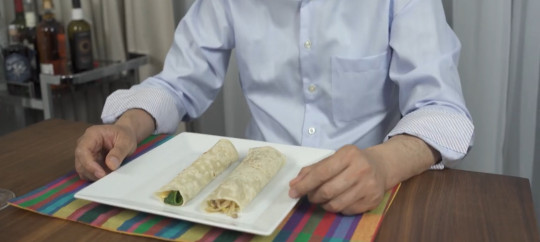
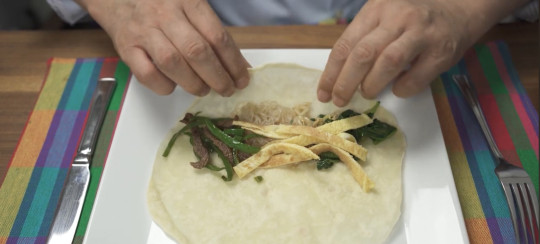
This is basically a Tibetan burrito. A soft, thin flatbread wrapped around various fillings. Typically these can have anywhere from 3-5 different fillings, consisting of things such as stir-fried vegetables, noodles, eggs, you name it. Yangchen would absolutely be a fan of the versitility, and would likely make these to use up leftovers for a tasty snack.
Shogo Khatsa - Spicy Potatoes


As the name implies, this dish is made up of spicy potatoes. I think Yangchen would actually be a huge fan of spice, and as such would totally love these. She would probably also dip them in Sepen, which is a Tibetan tomato-based chili sauce.
Various Street Foods

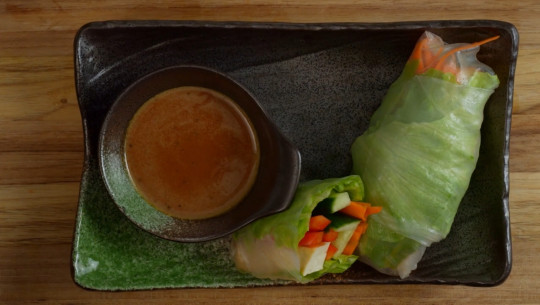
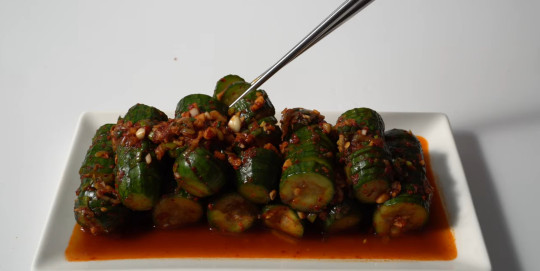
Yangchen would love trying local street foods at all the places she visits, but she has a few favorites. Fried tofu, spring rolls, and spicy cucumbers. They're all very easy on the go snacks.
Onion Tingmo
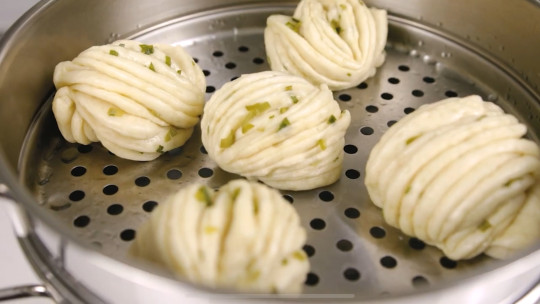
This snack is definitely more of a comfort food. These are a type of steamed bun with green onions folded in, and I think these would be Yangchen’s guilty pleasure; the kind of food she could eat for breakfast, lunch, and dinner.
Meals
Tenchung - Lentil Soup

The Air Nomads would certainly be fans of lentils, considering their high protein and iron content. This is another very simple soup, but would be very comforting and nostalgic for Yangchen - as well as quite filling.
Mokthuk - Momo Soup
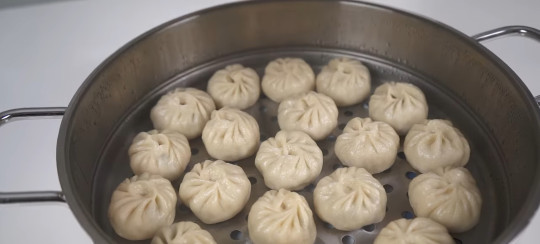

Momos are Tibetan dumplings, which Yangchen would enjoy eating on their own, but when added to a hearty soup the dish is called Mokthuk. As you're probably starting to figure out, I think Yangchen is a pretty big soup fan. Just like in the attached video, Yangchen would load her soup up with chili oil for added spice.
Pishi - Tibetan Dumpling Soup (also known as "Lemur-Face Soup")

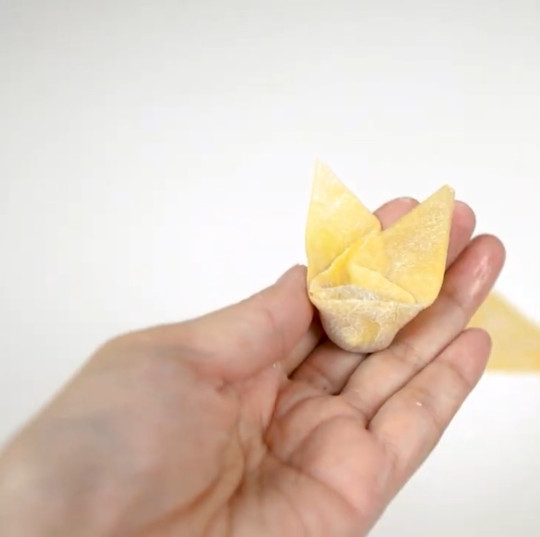
This soup is extremely similar to Mokthuk, but the dumplings are made in a different way and more resemble wontons. This dish is often colloquially referred to as "Lemur-Face Soup" by Air Nomad children, as the folded dumplings resemble the faces of flying lemurs. Because the dumplings for this soup require a bit of extra effort, it would have been a rare treat growing up. Yangchen loves it both for the flavor and the fond memories it brings.
Desserts
Tenshi-Bhakthuk

This is a fried pastry covered in a sugar syrup that is typically served at New Year's celebrations. They are small, crunchy little snacks that Yangchen would love eating each year at the celebration.
Bulug

The best way I can describe this is that it's a Tibetan funnel cake. This is also served at New Year's celebrations. When Yangchen was younger, she and her sister Jetsun would always get one of these to split. It's a bittersweet memory now, but she still absolutely loves the food.
----
And there we have it! A whole selection of foods I think Yangchen would enjoy. Feel free to use this in fics, art, headcanons, whatever, and your own as you see fit!
Due to all this research I've done, I also have lots of ideas for foods that could be added to the Air Nomad cuisine as a whole - who knows, maybe that will become a separate post of its own!
Pretty much all recipes came from Palden's Kitchen ; would absolutely recommend checking his channel out! His videos are very high quality and his voice is incredibly soothing, honestly I want this man as my grandfather now.
Finally, I also need to give a shoutout to @atlaculture for providing inspiration and resources for my Tibetan food deep dive!
#avatar the last airbender#atla#chronicles of the avatar#yangchen novels#the dawn of yangchen#the legacy of yangchen#avatar yangchen#yangchen#tibetan food#writing reference#atla meta
47 notes
·
View notes
Text
Struggling with expressions? Here are some example sentences for facial expressions!
=========
Eyes/Eyebrows
=========
His eyes widened
Her eyes went round
Her eyelids drooped
His eyelids narrowed
His eyes lit up
His eyes darted
He squinted
She blinked
Her eyes twinkled
Her eyes gleamed
Her eyes sparkled
His eyes flashed
His eyes glinted
Her eyes burned with…
Her eyes blazed with…
His eyes sparked with…
Her eyes flickered with…
The corners of his eyes crinkled
She rolled her eyes
He looked heavenward
She glanced up to the ceiling
She winked
Tears filled her eyes
His eyes welled up
Her eyes swam with tears
His eyes flooded with tears
Her eyes were wet
His eyes glistened
Tears shimmered in her eyes
Tears shone in his eyes
Her eyes were glossy
He was fighting back tears
Tears ran down her cheeks
His eyes closed
She squeezed her eyes shut
He shut his eyes
His lashes fluttered
She batted her eyelashes
His brows knitted
Her forehead creased
His brow furrowed
Her forehead puckered
A line appeared between her brows
His brows drew together
She raised a brow
Her brows snapped together
His eyebrows rose
He lifted an eyebrow
His eyebrows waggled
She gave him a once-over
He sized her up
Her eyes bored into him
She took in the sight of…
He glared
She peered
He gazed
She glanced
He stared
She scrutinized
He studied
She gaped
He observed
She surveyed
He gawked
He leered
His pupils (were) dilated
Her pupils were huge
His pupils flared
=========
Nose
=========
Her nose crinkled
His nose wrinkled
She sneered
His nostrils flared
She stuck her nose in the air
He sniffed
She sniffled
=========
Mouth
=========
She smiled
He smirked
She grinned
He simpered
She beamed
Her mouth curved into a smile
The corners of his mouth turned up
The corner of her mouth quirked up
A corner of his mouth lifted
His mouth twitched
He gave a half-smile
She gave a lopsided grin
His mouth twisted
He plastered a smile on his face
She forced a smile
He faked a smile
Her smile faded
His smile slipped
He pursed his lips
She pouted
Her mouth snapped shut
His mouth set in a hard line
He pressed his lips together
She bit her lip
He drew his lower lip between his teeth
She nibbled on her bottom lip
He chewed on his bottom lip
His jaw set
Her jaw clenched
A muscle in her jaw twitched
Her jaw tightened
He ground his jaw
He snarled/his lips drew back in a snarl
Her mouth fell open
His jaw dropped
Her jaw went slack
He gritted his teeth
She gnashed her teeth
His lower lip trembled
Her lower lip quivered
=========
Skin
=========
She paled
He blanched
She went white
The color drained from his face
His face reddened
Her cheeks turned pink
His face flushed
She blushed
He turned red
She turned scarlet
He turned crimson
A flush crept up her face
=========
Whole Face
=========
He screwed up his face
She scrunched up her face
He grimaced
She winced
She gave him a dirty look
He frowned
She scowled
He glowered
Her whole face lit up
She brightened
=========
This is just a basic guide to facial expressions! There are many more ways to describe your character’s expressions, which I will get into in a later post.
#writerscommunity#writing community#writers community#writing help#creative writing#story writing#fiction writing#writers on tumblr#writeblr#writing#vocabulary#writing tips#helping writers#references for writers#writing reference#writing advice#writing resources#writing tips and tricks#grammar#english language#english#synonyms#linguistics#fanfiction tips#character building#creative expression#motivation#creative inspiration#inspiration#creativity
35 notes
·
View notes
Text
sometimes you need dialogue tags and don't want to use the same four


#fanfic writing#writing#creative writing#writers on tumblr#writing dialogue#writing reference#writing tips#synonyms#writing resources#for future reference
60K notes
·
View notes
Text
Worldbuilding- Politics
Experiment with political systems
Sure, having a king/queen is simple, but have you ever tried:
Democracy
Multiple nobles and they all have the same amount of power (lot of conflict potential)
You can become ruler by defeating the current ruler in a fight
The merchants run everything
A noble and a parliament rule
The most intelligent people rule
…
There are thousands of possibilities, be creative!
30K notes
·
View notes
Text
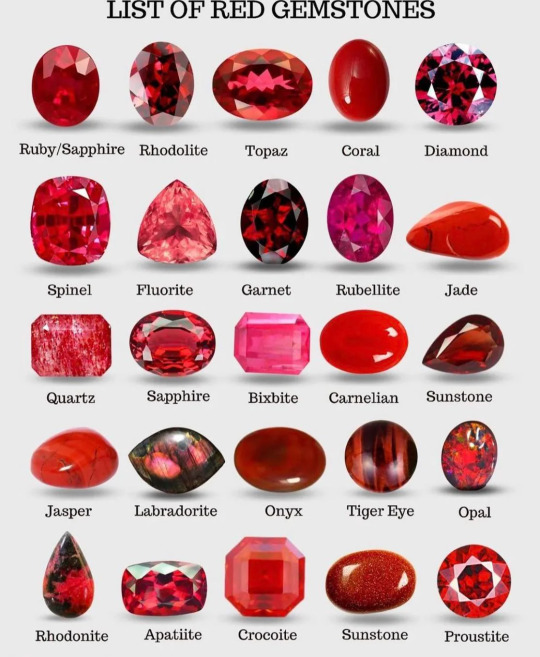
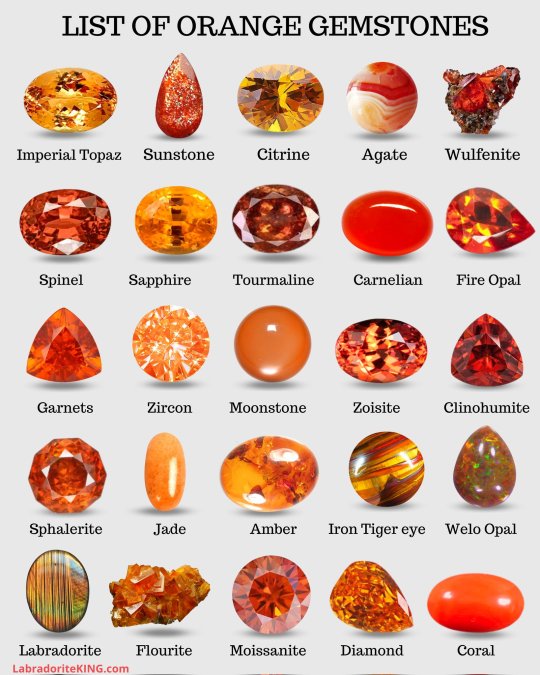
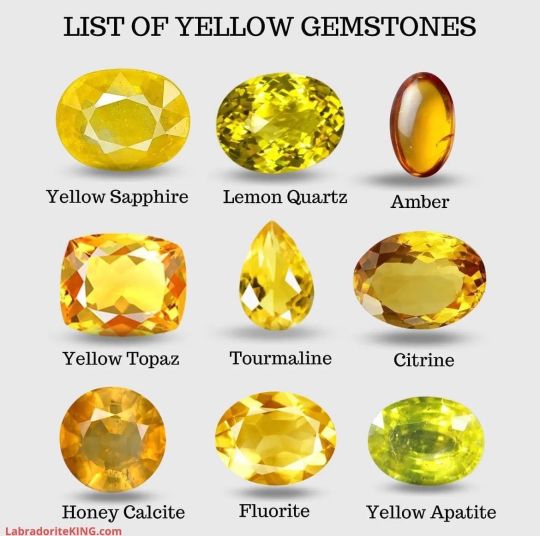
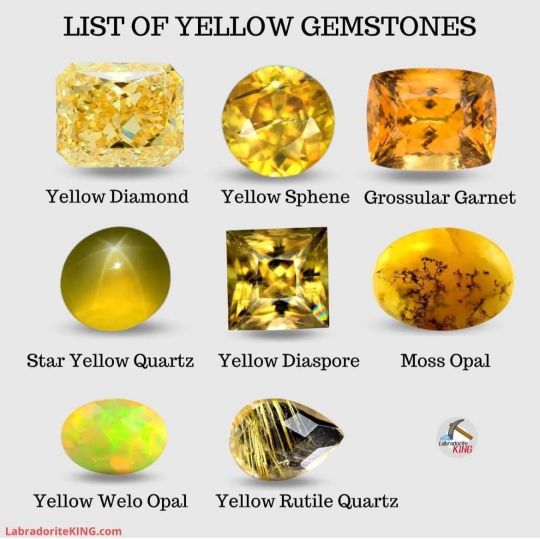
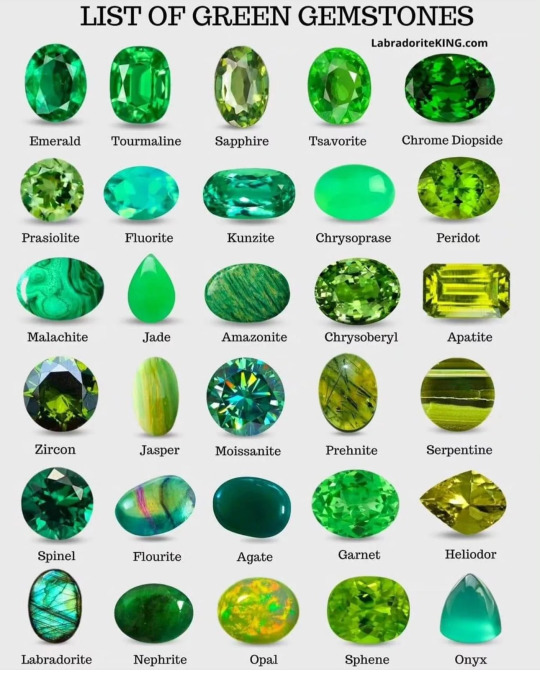
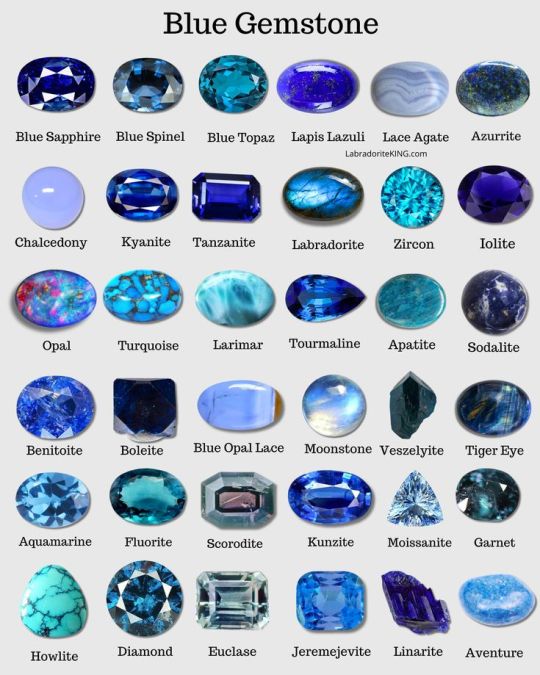
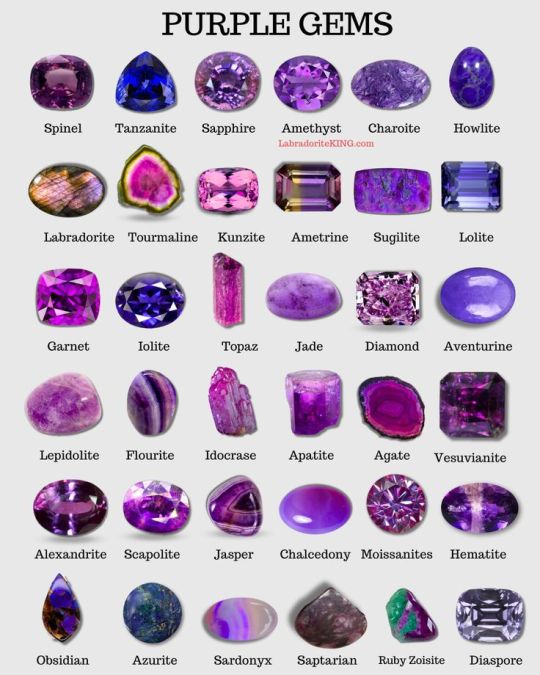
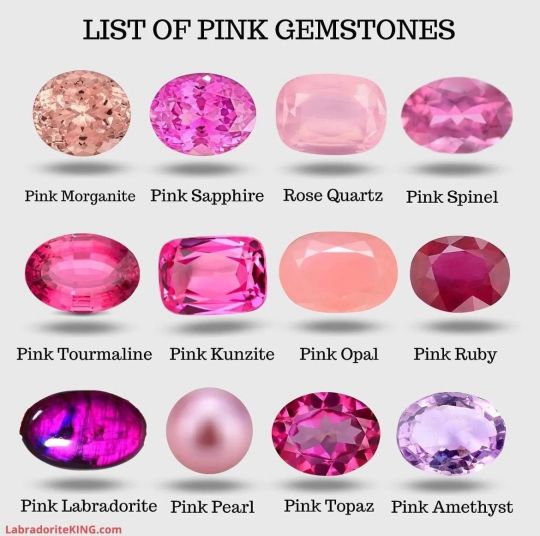
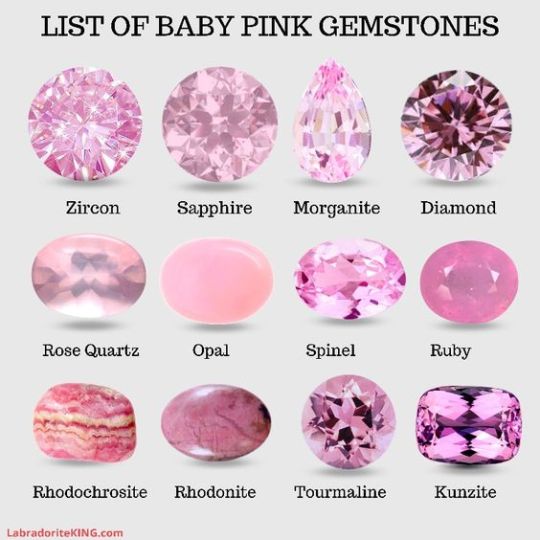
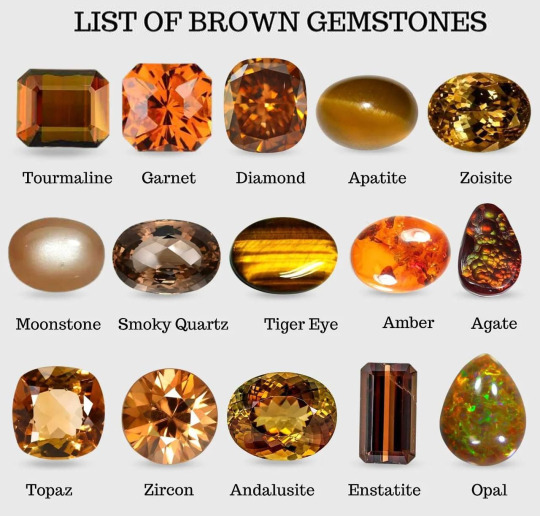
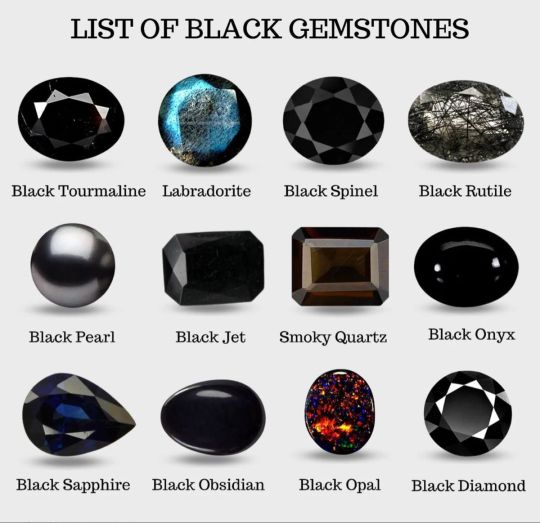

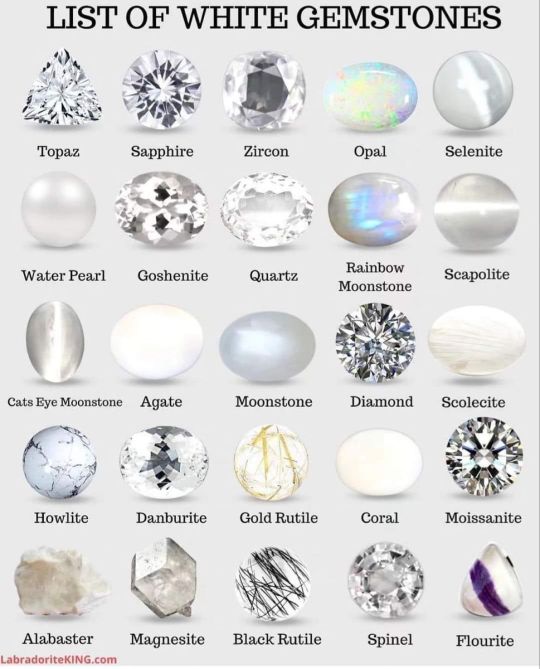
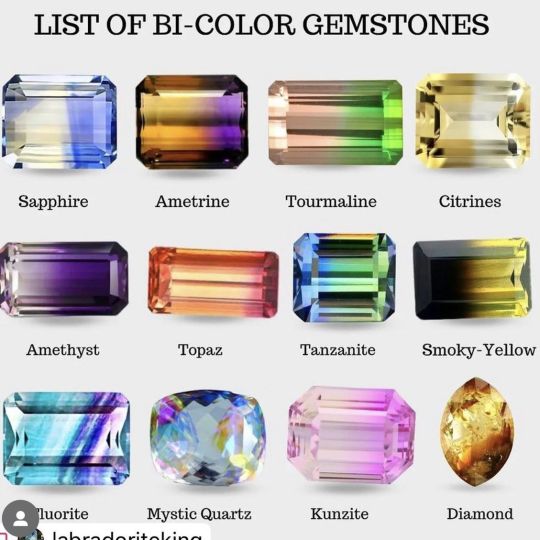
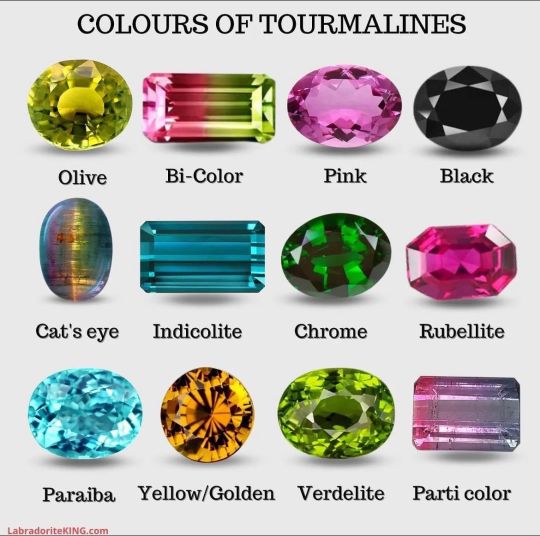
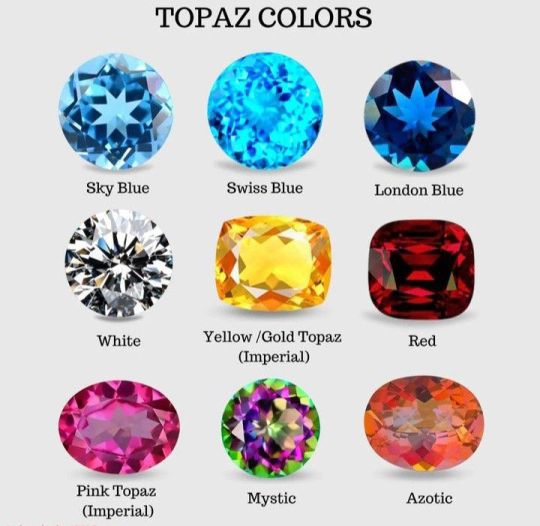
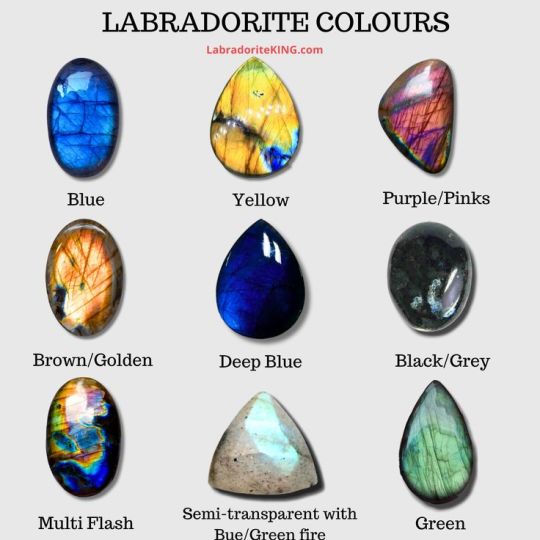
By LabradoriteKing on Pinterest
#Tutorials & References#Gemstones#Jewels#Art Reference#Writing Reference#Gemstones Reference#If the original marker wants me to take this down I will
133K notes
·
View notes
Text
a list of 100+ buildings to put in your fantasy town
academy
adventurer's guild
alchemist
apiary
apothecary
aquarium
armory
art gallery
bakery
bank
barber
barracks
bathhouse
blacksmith
boathouse
book store
bookbinder
botanical garden
brothel
butcher
carpenter
cartographer
casino
castle
cobbler
coffee shop
council chamber
court house
crypt for the noble family
dentist
distillery
docks
dovecot
dyer
embassy
farmer's market
fighting pit
fishmonger
fortune teller
gallows
gatehouse
general store
graveyard
greenhouses
guard post
guildhall
gymnasium
haberdashery
haunted house
hedge maze
herbalist
hospice
hospital
house for sale
inn
jail
jeweller
kindergarten
leatherworker
library
locksmith
mail courier
manor house
market
mayor's house
monastery
morgue
museum
music shop
observatory
orchard
orphanage
outhouse
paper maker
pawnshop
pet shop
potion shop
potter
printmaker
quest board
residence
restricted zone
sawmill
school
scribe
sewer entrance
sheriff's office
shrine
silversmith
spa
speakeasy
spice merchant
sports stadium
stables
street market
tailor
tannery
tavern
tax collector
tea house
temple
textile shop
theatre
thieves guild
thrift store
tinker's workshop
town crier post
town square
townhall
toy store
trinket shop
warehouse
watchtower
water mill
weaver
well
windmill
wishing well
wizard tower
#worldbuilding#setting prompts#writer resources#writing inspiration#writing prompts#scene settings#writing reference#writing ideas#prompt list#creative writing#writing community#writer prompts#writing tips#world#fantasy world#fantasy worldbuilding#high fantasy#world building#epic fantasy#writing fantasy
103K notes
·
View notes
Text
Writing Notes & References
Alchemy ⚜ Antidote to Anxiety ⚜ Attachment ⚜ Autopsy
Art: Elements ⚜ Principles ⚜ Photographs ⚜ Watercolour
Bruises ⚜ Caffeine ⚜ Color Blindness ⚜ Cruise Ships
Children ⚜ Children's Dialogue ⚜ Childhood Bilingualism
Dangerousness ⚜ Drowning ⚜ Dystopia ⚜ Dystopian World
Culture ⚜ Culture Shock ⚜ Ethnocentrism & Cultural Relativism
Emotions: Anger ⚜ Fear ⚜ Happiness ⚜ Sadness
Emotional Intelligence ⚜ Genius (Giftedness) ⚜ Quirks
Facial Expressions ⚜ Laughter & Humour ⚜ Swearing & Taboo
Fantasy Creatures ⚜ Fantasy World Building
Generations ⚜ Literary & Character Tropes
Fight Scenes ⚜ Kill Adverbs
Food: Cooking Basics ⚜ Herbs & Spices ⚜ Sauces ⚜ Wine-tasting ⚜ Aphrodisiacs ⚜ List of Aphrodisiacs ⚜ Food History ⚜ Cocktails ⚜ Literary & Hollywood Cocktails ⚜ Liqueurs
Genre: Crime ⚜ Horror ⚜ Fantasy ⚜ Speculative Biology
Hate ⚜ Love ⚜ Kinds of Love ⚜ The Physiology of Love
How to Write: Food ⚜ Colours ⚜ Drunkenness
Jargon ⚜ Logical Fallacies ⚜ Memory ⚜ Memoir
Magic: Magic System ⚜ 10 Uncommon ⚜ How to Choose
Moon: Part 1 2 ⚜ Related Words
Mystical Items & Objects ⚜ Talisman ⚜ Relics ⚜ Poison
Pain ⚜ Pain & Violence ⚜ Poison Ivy & Poison Oak
Realistic Injuries ⚜ Rejection ⚜ Structural Issues ⚜ Villains
Symbolism: Colors ⚜ Food ⚜ Numbers ⚜ Storms
Thinking ⚜ Thinking Styles ⚜ Thought Distortions
Terms of Endearment ⚜ Ways of Saying "No" ⚜ Yoga
Compilations: Plot ⚜ Character ⚜ Worldbuilding ⚜ For Poets ⚜ Tips & Advice
all posts are queued. will update this every few weeks/months. send questions or requests here ⚜ Writing Resources PDFs
#writing reference#writing inspiration#writeblr#dark academia#spilled ink#literature#writers on tumblr#poets on tumblr#light academia#lit#poetry#writing notes#fiction#novel#booklr#creative writing#writing prompts#writing ideas#worldbuilding#character design#plot#writing resources
13K notes
·
View notes
Text
Other Words for "Look" + With meanings | List for writers
Many people create lists of synonyms for the word 'said,' but what about the word 'look'? Here are some synonyms that I enjoy using in my writing, along with their meanings for your reference. While all these words relate to 'look,' they each carry distinct meanings and nuances, so I thought it would be helpful to provide meanings for each one.
Gaze - To look steadily and intently, especially in admiration or thought.
Glance - A brief or hurried look.
Peek - A quick and typically secretive look.
Peer - To look with difficulty or concentration.
Scan - To look over quickly but thoroughly.
Observe - To watch carefully and attentively.
Inspect - To look at closely in order to assess condition or quality.
Stare - To look fixedly or vacantly at someone or something.
Glimpse - To see or perceive briefly or partially.
Eye - To look or stare at intently.
Peruse - To read or examine something with great care.
Scrutinize - To examine or inspect closely and thoroughly.
Behold - To see or observe a thing or person, especially a remarkable one.
Witness - To see something happen, typically a significant event.
Spot - To see, notice, or recognize someone or something.
Contemplate - To look thoughtfully for a long time at.
Sight - To suddenly or unexpectedly see something or someone.
Ogle - To stare at in a lecherous manner.
Leer - To look or gaze in an unpleasant, malicious way.
Gawk - To stare openly and stupidly.
Gape - To stare with one's mouth open wide, in amazement.
Squint - To look with eyes partially closed.
Regard - To consider or think of in a specified way.
Admire - To regard with pleasure, wonder, and approval.
Skim - To look through quickly to gain superficial knowledge.
Reconnoiter - To make a military observation of a region.
Flick - To look or move the eyes quickly.
Rake - To look through something rapidly and unsystematically.
Glare - To look angrily or fiercely.
Peep - To look quickly and secretly through an opening.
Focus - To concentrate one's visual effort on.
Discover - To find or realize something not clear before.
Spot-check - To examine something briefly or at random.
Devour - To look over with eager enthusiasm.
Examine - To inspect in detail to determine condition.
Feast one's eyes - To look at something with great enjoyment.
Catch sight of - To suddenly or unexpectedly see.
Clap eyes on - To suddenly see someone or something.
Set eyes on - To look at, especially for the first time.
Take a dekko - Colloquial for taking a look.
Leer at - To look or gaze in a suggestive manner.
Rubberneck - To stare at something in a foolish way.
Make out - To manage to see or read with difficulty.
Lay eyes on - To see or look at.
Pore over - To look at or read something intently.
Ogle at - To look at in a lecherous or predatory way.
Pry - To look or inquire into something in a determined manner.
Dart - To look quickly or furtively.
Drink in - To look at with great enjoyment or fascination.
Bask in - To look at or enjoy something for a period of time.
#on writing#creative writing#writing#writing tips#writers block#how to write#thewriteadviceforwriters#writeblr#writers and poets#writers on tumblr#novel writing#fiction writing#romance writing#writing advice#writing blog#writing characters#writing community#writing help#writing ideas#writing inspiration#writing guide#writing prompts#writing a book#writing resources#writing reference#writing tips and tricks#writers#writing tools#writing life#writing software
10K notes
·
View notes
Text
Writing References: Colours
Black ⚜ Blue ⚜ Brown ⚜ Green ⚜ Grey ⚜ Orange
Pink ⚜ Purple ⚜ Red ⚜ Variegation ⚜ White ⚜ Yellow
Word Alternatives ⚜ Archaic Words ⚜ Dark
Describing Colours ⚜ Word List ⚜ Gold
Symbolisms: Colour Vitamins ⚜ "Magical" Uses
More: Notes & References ⚜ Writing Resources PDFs
#requested#compilation#colour#writing reference#writeblr#dark academia#writing inspiration#spilled ink#literature#writers on tumblr#poets on tumblr#light academia#poetry#booklr#writing notes#fiction#novel#creative writing#bookblr#writing prompts#symbolism#writing ideas#worldbuilding#words#writing resources
185 notes
·
View notes
Text





Re-sharing this post I found on Twitter for people looking for alternatives to NaNo. I haven't tried any of these sites but they might be worth looking into.
#nanowrimo#national novel writing month#writeblr#don't know what else to tag this as lol#text post#writing reference#writing tag
10K notes
·
View notes